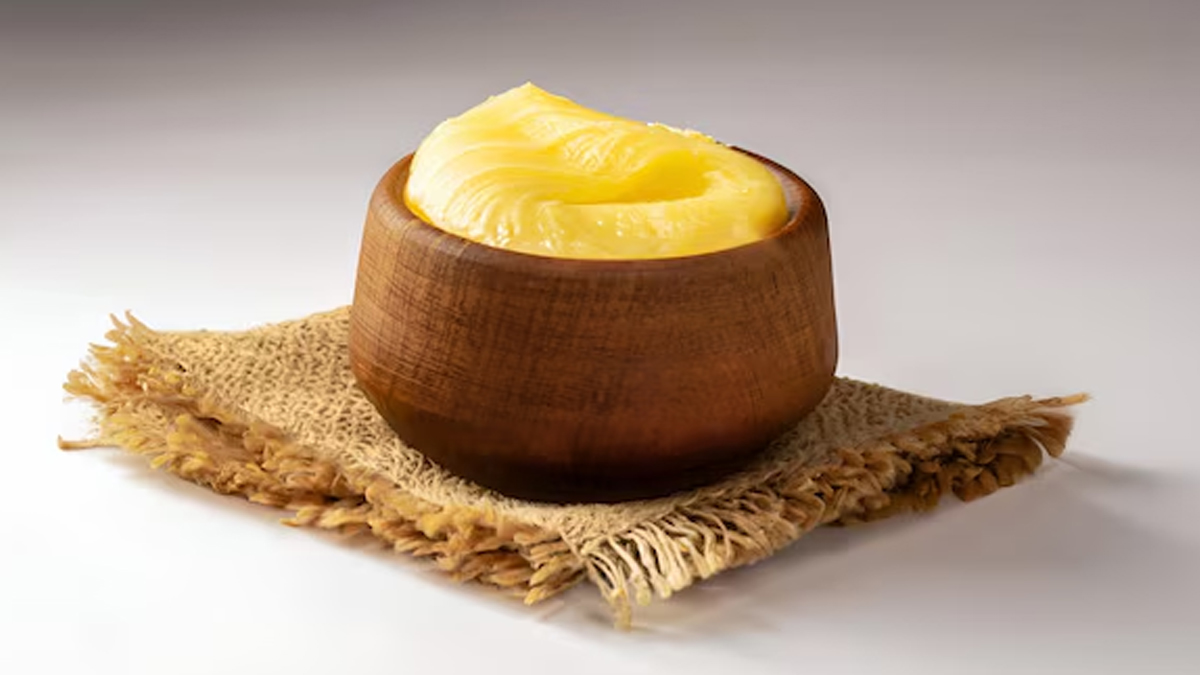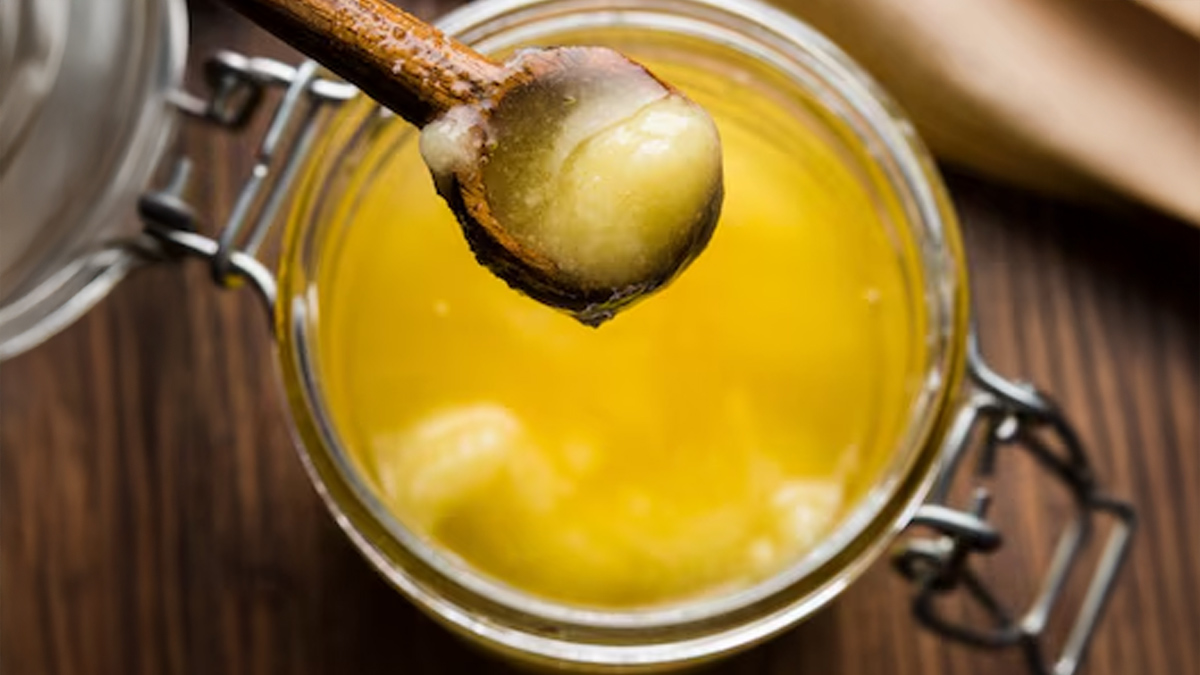
Imagine a food so versatile that it adds flavour to meals while also helping your child grow stronger and healthier. For centuries, desi ghee has been a staple in Indian households, valued for its rich taste and numerous health benefits. But is it suitable for kids? If so, when should you start giving it to them? Let’s explore the role of desi ghee in children’s diets, with insights from an expert.
Table of Content:-
Why is Desi Ghee a Superfood for Kids?
View this post on Instagram
Desi ghee, or clarified butter, is packed with nutrients essential for a child’s growth and development. Dr Mohit Sethi, Former Senior Resident, Maulana Azad Medical College, Delhi.
explains, "Ghee can be introduced to a baby when they are six months old, as part of their initial solid foods or nutrition." Here’s why ghee is considered a superfood for kids:
- Rich in Nutrients: Ghee contains fat-soluble vitamins A, D, E, and K, which are vital for bone strength, immunity, and overall growth.
- Energy Booster: As kids require more energy than adults due to rapid growth, ghee provides instant energy to fuel their activities.
- Supports Brain Development: Omega-3 and Omega-9 fatty acids in ghee aid brain development and improve memory retention.
- Improves Digestion: Ghee contains butyric acid, which supports gut health and helps in better digestion.
When and How Much Ghee Should Kids Consume?![desi ghee for kids 3 (64)]()
Dr Sethi offers clear guidelines on introducing ghee into a child’s diet based on their age:
- 6–9 Months Old: One-fourth teaspoon of ghee twice a day.
- 9–12 Months Old: Half a teaspoon of ghee twice a day.
- Above 1 Year Old: One-fourth teaspoon of ghee twice a day.
These small quantities are sufficient to provide the necessary nutrients without overwhelming the baby’s digestive system.
ALSO READ: Is Tea Safe for Children? What Every Parent Needs to Know About Caffeine
What Makes Ghee Unique?![ghee for kids 1 - 2025-04-15T155058.409]()
Unlike other fats or oils, desi ghee is easily digestible and free from trans fats. It has a high smoking point, making it safe for cooking at high temperatures without losing its nutritional value. Dr Sethi emphasises that even children with lactose intolerance or cow milk protein allergies can safely consume ghee. "If the baby has lactose intolerance or a cow milk protein allergy, you can give ghee to them easily," he assures.
Scientific Backing: A Study on Ghee's Benefits
A study published in the American Journal of Clinical Nutrition highlights that fat-soluble vitamins like Vitamin D in ghee improve calcium absorption, promoting stronger bones in growing children. Additionally, Omega-3 fatty acids found in ghee contribute to cognitive development during early childhood.
Benefits of Ghee for Kids![ghee for babies 2 - 2025-04-15T155053.756]()
Here are some key benefits of adding desi ghee to your child’s diet:
- Boosts Immunity: Antioxidants in ghee strengthen the immune system and help fight infections.
- Promotes Healthy Weight Gain: Ghee provides healthy fats that support weight gain during early years.
- Enhances Skin Health: The right fats keep the skin soft and glowing without causing unnecessary weight gain.
- Detoxifies the Body: Ghee supports liver detoxification and helps eliminate toxins from the body.
How to Add Ghee to Your Child’s Diet
Ghee can be incorporated into various meals:
- Add it to mashed vegetables or lentils.
- Use it as a topping for rice or porridge.
- Mix it into soups or stews for added flavour.
- Its mild taste makes it easy to blend into most dishes without altering their flavour significantly.
ALSO READ: Regular Tea vs Matcha: Expert Shares Which Brew Wins for Overall Health
Conclusion
Desi ghee is more than just a cooking ingredient as it’s a powerhouse of nutrition that supports your child’s physical and mental development. Introducing small amounts of ghee from six months onwards can provide essential nutrients while enhancing the taste of your child’s meals. So, if you’ve been wondering whether desi ghee is good for kids, the answer is a resounding yes!
Also watch this video
Read Next
Is Your Child Sleepwalking or Crying at Night? Here’s What You Need to Know About Parasomnia
How we keep this article up to date:
We work with experts and keep a close eye on the latest in health and wellness. Whenever there is a new research or helpful information, we update our articles with accurate and useful advice.
Current Version
-1744712807085.jpg)

